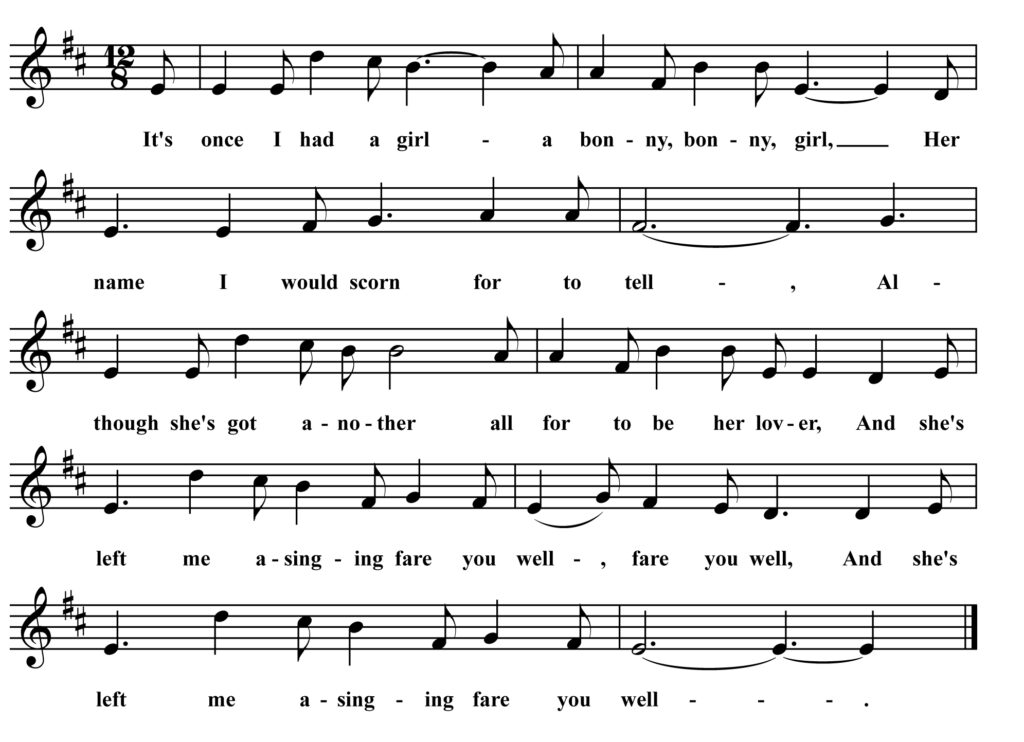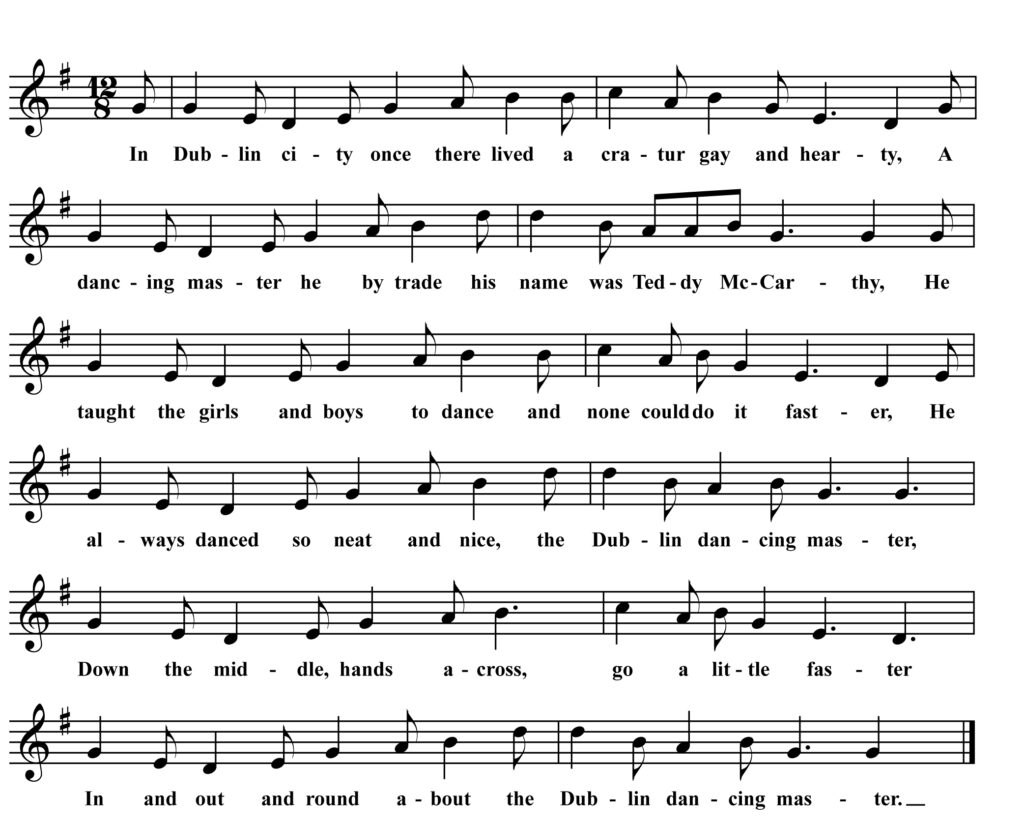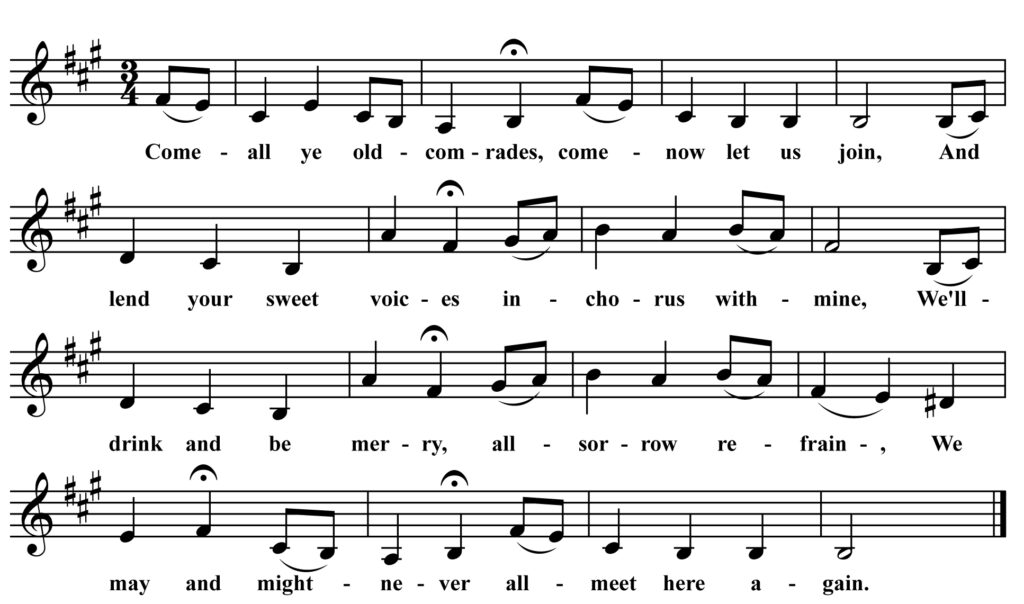Once I Had a Girl

It’s once I had a girl, a bonny, bonny girl,
Her name I would scorn for to tell,
Although she’s got another all for to be her lover,
And she’s left me a-singing fare you well, fare you well,
And she’s left me a-singing fare you well.
As I walked out the Donnybrook side,
Near by the pine trees dwell,
It’s there I saw my girl, my bonny, bonny girl,
She was clasped in another man’s arms, arms, arms,
She was clasped in another man’s arms.
She reached out to me her lily white hand,
Just as if I was at her command,
Oh I soon passed her by, I ne’er cast an eye,
I was scorned to be slighted a girl, girl, girl,
I was scorned to be slighted by a girl.
Although my love is good, and just as good as she,
Although she has houses and land,
Of sweethearts I have plenty, I can count them out by twenty,
I can turn, I can change like the wind, wind, wind,
I can turn, I can change like the wind.
The above was sung by Mr. Sydney Boutilier of French Village, Nova Scotia for Helen Creighton’s recording machine in 1950. Creighton called it a “very pretty little love song” but, as far as I can tell, did not publish it in any of her folk song collections. It seems to be a rare song in tradition but I agree with Creighton that the melody is nice! I found this one among the many gems now available online through the Nova Scotia Archives at archives.novascotia.ca.


